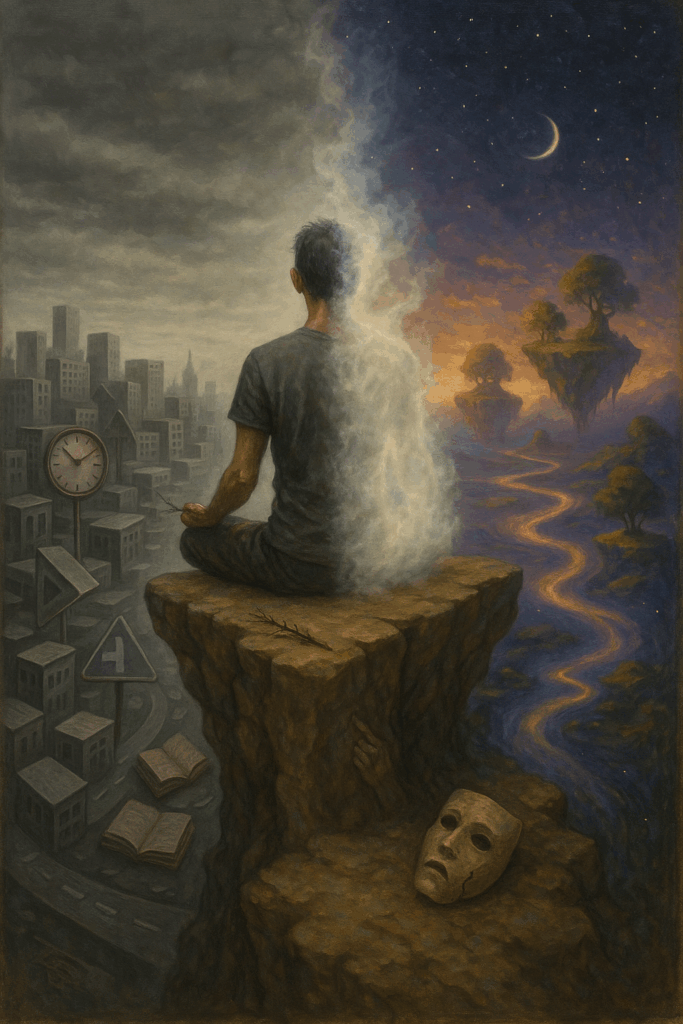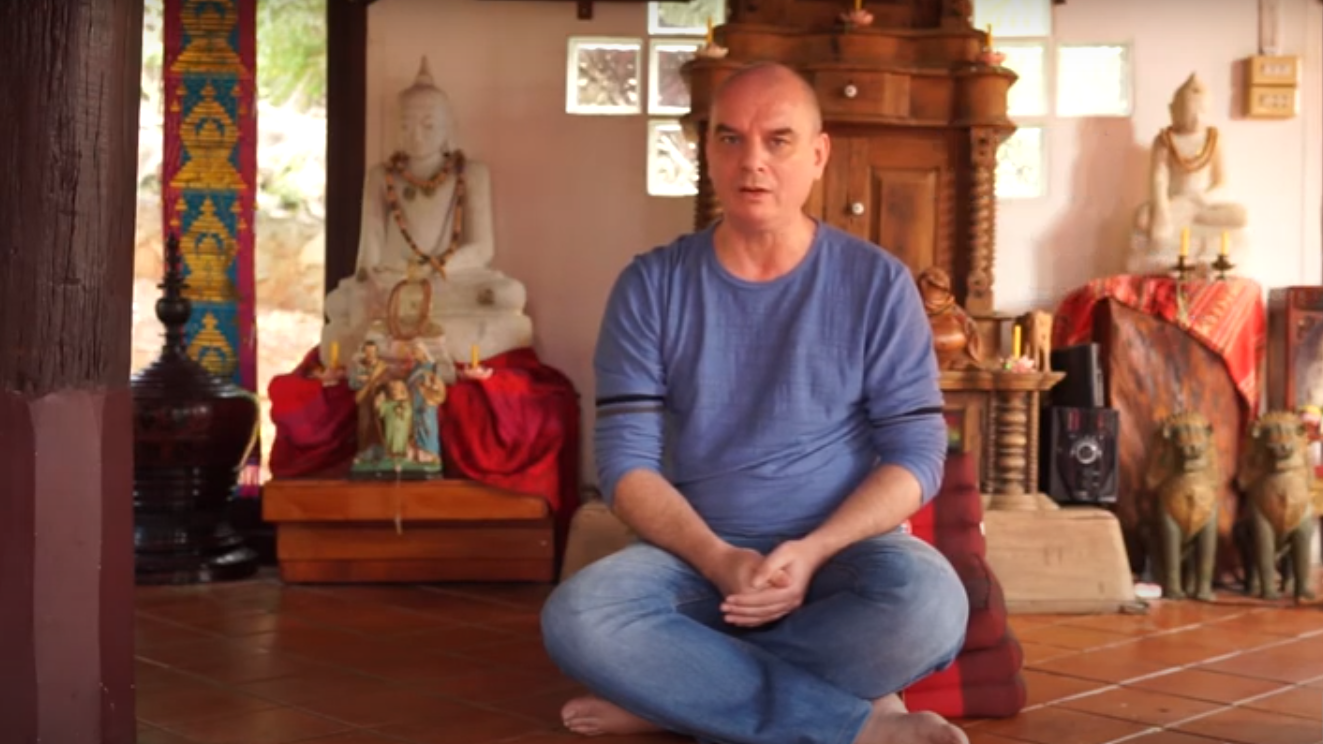
Between Two Worlds
There is a way of experiencing life where we are immersed in trust, intimacy, and wonder. I call this the non-ordinary world. It is a world where we break free of concerns as the enormity of this magical and absurd thing called life hits us. The non-ordinary world is a move away from conceptual knowing towards the recognition of the limits of our knowing. Not so much a destruction of concepts, but a liberation from the tendency to take them literally.
The terms ordinary world and non-ordinary world are of course concepts in themselves. But, what I’m trying to suggest that the problem isn’t so much the concepts themselves, it is taking them to be literal. This creates a kind of conceptual prison. I am not claiming there literally is an ordinary world and non-ordinary world, but that this way of looking at things can be helpful if it leads us to trust, intimacy, and wonder. Sometimes, we can use a thorn to remove a thorn.
We tend to live in what we might call the ordinary world. This is a world comprised of concepts and the assumptions we are making about life. It is not so much that this world is less real than the non-ordinary world, but more that it so easily creates a conflict. In fact, when it comes to what is real, perhaps the best approach is humble admission of not knowing. Maybe, the best approach is to move the conversation away from what is real towards how we can reduce suffering and increase satisfaction in life.
It is a crude analogy, but we might compare this to somebody taking a recreational drug. What this does is alter the person’s experience in a way that can, at least in the beginning, lead to a much improved experience. This change doesn’t depend on beliefs or conceptions, yet it is something that is undeniable. We might say that the state people take when they use these substances is self-evident. It doesn’t require any proof.
Of course, recreational drugs are a flawed path to follow because of where it can lead. It is also only offers a temporary change that isn’t that reliable and becomes harder to achieve as people develop tolerance to the drug. But, we can still think of a move from the ordinary world to the non-ordinary world in these terms. It doesn’t require new beliefs or new opinions, but simply a change in how we relate to life.
This could all sound like another form of escapism or even a type of spiritual bypassing. But all we are doing is admitting something that is kind of obvious. Our concepts may be useful, but do we really know with absolute certainty that they are true. The problem is that without realizing it, we often treat our concepts as if they were absolutely true. So, when the thought “other people don’t like me” pops into our head, we can easily treat this as if it were undeniably true.
The Conflict Between What Is and What We Think
The ordinary world is created through our concepts. These concepts can be useful. We might even argue that the success of the human race has depended on our ability to create concepts. But, these concepts can create unnecessary suffering and remove all of the wonder from life. When we think we know, this tends to dampen our curiosity and access to wonder. It also creates a tension as our knowing will depend on assumptions that can be challenged. If I know that I’m a good person, it can bring me into conflict with the richness and complexity of what I am. If I know what should be happening, it creates the misery of expectations being crushed. If I know how other people should behave, they can become a constant source of disappointment.
To help us better understand the distinction between the ordinary world and the non-ordinary world, it might be useful to look at an idea from the German philosopher Fichte. He suggested that there was a division in our perception between the “I” and the “not-I”. The I needs to distinguish itself from the not-I by being different, but this creates an ongoing tension between the not-I and the I. So, if I see myself as successful, I can start to see the world in terms of all of the forces operating against my success. We could think of ordinary world as living with this I/not I tension while the non-ordinary world is what becomes increasingly apparent as this tension is eased.
In The Ordinary World But Not Of It
The non-ordinary world isn’t separate from the ordinary world. It reveals itself to the extent that we are able to put aside our concepts. It is what remains when we stop believing what this is. There is a reluctance to claim it as more real than the ordinary world because this can potentially an unhelpful concept. But, it certainly feels more real, more reliable, and liberating. It also feels like home as our resistance to life subsides and we can relax into what is happening. This relaxation doesn’t mean avoiding the real challenges in our life, but facing them without our usual “shoulds” which so often cause resistance.
The Buddha advised that we must not mistake the finger pointing at the moon for the moon. And so here I am attempting to point at something that you can experience for yourself. Practices like mindfulness can loosen the grip that concepts have on us, so we can begin to notice this non-ordinary world for ourselves.
So, why would this non-ordinary world reveal peace, intimacy, and wonder? We can think of peace as the absence of resistance in life. Easing the resistance that is created as our shoulds come into conflict with what is happening. It is this struggle that makes it seem as if we are disconnected from everything else, as if everything else is getting in our way (Fichte’s not-I), so easing this leads to increased intimacy. As we realize the limitations of our knowing, it bursts open the doors of wonder.
